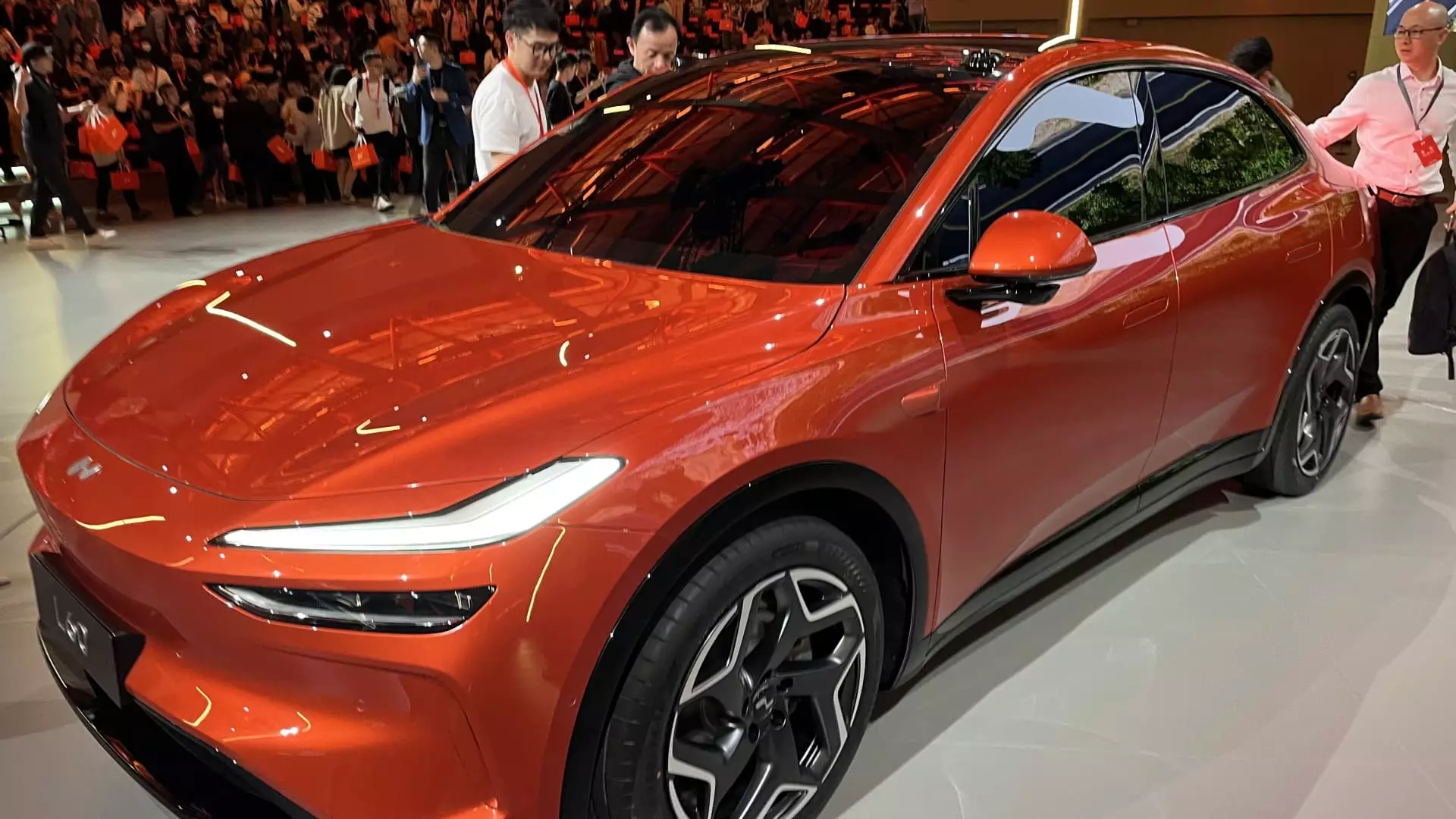The electric vehicle (EV) landscape in China has witnessed a dynamic transformation in recent years, dominated by numerous contenders vying for market share against established players like Tesla. Among these challengers is Onvo, a new brand introduced by the premium EV manufacturer Nio, which aims to capture consumer interest with a game-changing price point. With the launch of the Onvo L60 SUV, the company is positioning itself as a formidable alternative to Tesla and its roster of competitive offerings.
At the heart of Onvo’s strategy is the introduction of the L60 SUV, which starts at an attractive price of 149,900 yuan ($21,210) for customers who opt for a subscription battery service priced at a mere 599 yuan per month. This innovative model democratizes EV ownership by allowing consumers to “rent” the battery, mitigating concerns related to upfront costs. This pricing structure reflects a clear intent to reach budget-conscious buyers who may have previously perceived electric vehicles as unaffordable. Moreover, even when purchasing the vehicle with the battery included, the starting price is competitive at 206,900 yuan.
Deliveries for the L60 are scheduled to begin from September 28, marking a significant milestone for both Onvo and Nio. The initial enthusiasm is evidenced by a 3.5% spike in Nio’s stock following the announcement—a testament to the market’s confidence in Onvo’s potential to disrupt the current EV hierarchy.
Nio’s strategic pricing is not merely a snapshot of the company’s ambition but a calculated effort to outmaneuver key competitors such as Tesla. The base model of Tesla’s Model Y currently retails for 249,900 yuan, thus the L60’s lower price offers a compelling alternative. Other players in the Chinese market are also entering the fray; for example, Geely-backed Zeekr plans to launch its Zeekr 7X SUV starting at 239,900 yuan, while Xpeng recently introduced its more affordable Mona brand, which starts at 119,800 yuan. As a result, the competition intensifies, prompting traditional automakers to rethink their pricing models.
Onvo’s aspirations extend beyond Chinese borders, as Nio eyes a global audience, which is clearly evidenced by CEO William Li’s comments regarding future deliveries to the United Arab Emirates and plans to tackle European markets. However, these ambitions are not without challenges. The European Union is tightening regulations that could impose tariffs on imported Chinese-made battery electric vehicles, as an investigation into Chinese EV subsidies unfolds. This poses significant hurdles, particularly for Nio, whose vehicles would incur a 20.8% duty in Europe—substantially higher than competitors Geely and BYD.
As a response to the changing landscape, Nio has adopted a cautious approach in Europe, focusing on the five markets it has already entered while continuing to build brand presence. The strategic establishment of Nio houses and power swap stations across Europe indicates a long-term vision balanced with immediate market realities.
Looking ahead, Nio anticipates significant growth for the Onvo brand, projecting a remarkable 10,000 monthly deliveries of the L60 by December, potentially doubling that figure the following year. The expectation of a 15% vehicle margin indicates that Onvo isn’t merely about volume, but also profitability. Furthermore, Nio’s ambition to exceed 200 store openings by year-end underscores its commitment to establishing a robust sales and service network.
With its competitive pricing and innovative battery subscription model, Onvo’s L60 stands to reshape perceptions of affordability and accessibility within the electric vehicle market. As Nio’s efforts illustrate, the interplay of competitive pricing, strategic planning, and international aspirations will be pivotal in determining the success of Onvo and other emerging brands in an increasingly crowded arena. The future of EVs in China promises to be both exciting and challenging, as traditional automotive norms give way to the new age of electric mobility.

